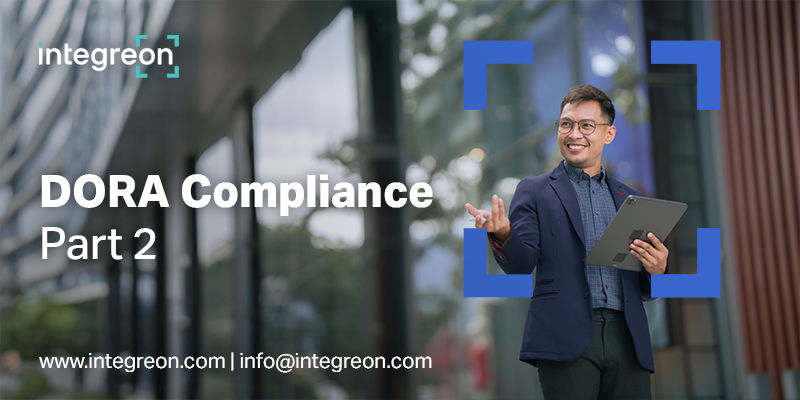Information Security
As legal departments are well aware, ensuring robust information security practices is crucial in managing operational risk. Under DORA, financial entities are required to safeguard sensitive data and systems against external and internal threats. Many organizations have taken significant steps to ensure that their global operations meet the highest standards in information security, including certification under the ISO 27001:2022 standard.
This is particularly important for law firms and legal departments that handle sensitive client data, as compliance with international security standards provides assurance that their vendors are taking proactive measures to protect the integrity and confidentiality of their information. Further certifications, such as SOC 2 Type 2, are increasingly common as organizations work to enhance their security posture and provide additional reassurances to their clients.
Physical Security
While much of DORA’s focus is on digital resilience, physical security remains a key component of overall operational stability. Legal departments understand that breaches of physical security can lead to data exposure and operational disruptions. Organizations have taken steps to implement robust physical security measures across their global delivery centers, including controlled access points, CCTV surveillance, and 24/7 monitoring. By meeting these standards, organizations reduce the risk of physical security breaches that could affect client data and operations.
Human Resources
When working with an outsourcing partner providing their people, DORA principles require third-party vendors to employ rigorous Human Resources (HR) controls. DORA-impacted clients often need vendors to conduct vetting beyond standard background checks (ex. credit ratings, OFAC searches, social media), as well as put in place confidentiality provisions, before any vendor resource can be assigned to a client’s account. Vendors that establish Learning & Development (L&D) teams have an additional advantage as it can dramatically improve both completion and knowledge retention for all annually required trainings pertaining to DORA compliance.
Finance
Given the regulatory scrutiny law firms face, especially in sectors like finance and insurance, it is critical that financial systems and operations are aligned with DORA’s resilience expectations. Organizations should work closely with their financial teams to ensure that financial processes and controls, including reporting and compliance (particularly those related to sanctions lists and AML/KYC), meet the rigorous standards set forth by DORA and other relevant regulations. Legal teams that have ensured financial operations are compliant with both internal policies and external regulation will reduce risk for the firms they serve.
Business Continuity and Disaster Recovery
For legal departments, particularly those in highly regulated industries, having business continuity and disaster recovery plans in place is essential to ensure that client services are not disrupted in the event of an operational failure. Comprehensive business continuity and disaster recovery strategies should be implemented to ensure operational stability, even in the face of unforeseen disruptions. These plans include data backup protocols, redundant systems, and rapid recovery procedures, ensuring that services can continue without interruption.
Data Privacy
Perhaps one of the most critical compliance areas under DORA for legal teams is data privacy. With strict regulatory requirements governing data protection—such as the GDPR—legal departments must ensure that their vendors comply with all relevant laws and regulations. Organizations have developed robust global privacy programs to ensure compliance with data protection laws, including GDPR, US state privacy laws, and other international privacy standards.
Legal teams can rely on these privacy frameworks, which include comprehensive data processing agreements (DPAs) to ensure compliance with applicable regulations. These organizations also ensure that data transfers between jurisdictions are legally sound. Whether dealing with international data transfers or working with clients operating in jurisdictions with their own data protection regulations, organizations must provide the necessary legal and technical safeguards to protect client data and mitigate compliance risks.
As legal departments prepare for DORA compliance, having trusted, compliant third-party service providers is essential for meeting the act’s requirements. By focusing on critical areas such as information security, physical security, business continuity, and data privacy, organizations can help their clients confidently manage their digital supply chain resilience obligations. With robust compliance processes and expertise in vendor onboarding, organizations assist clients in navigating complex regulatory landscapes efficiently and effectively. By partnering with vendors who have demonstrated a clear commitment to compliance, legal teams can focus on managing their core responsibilities while ensuring that they meet all DORA’s requirements.



